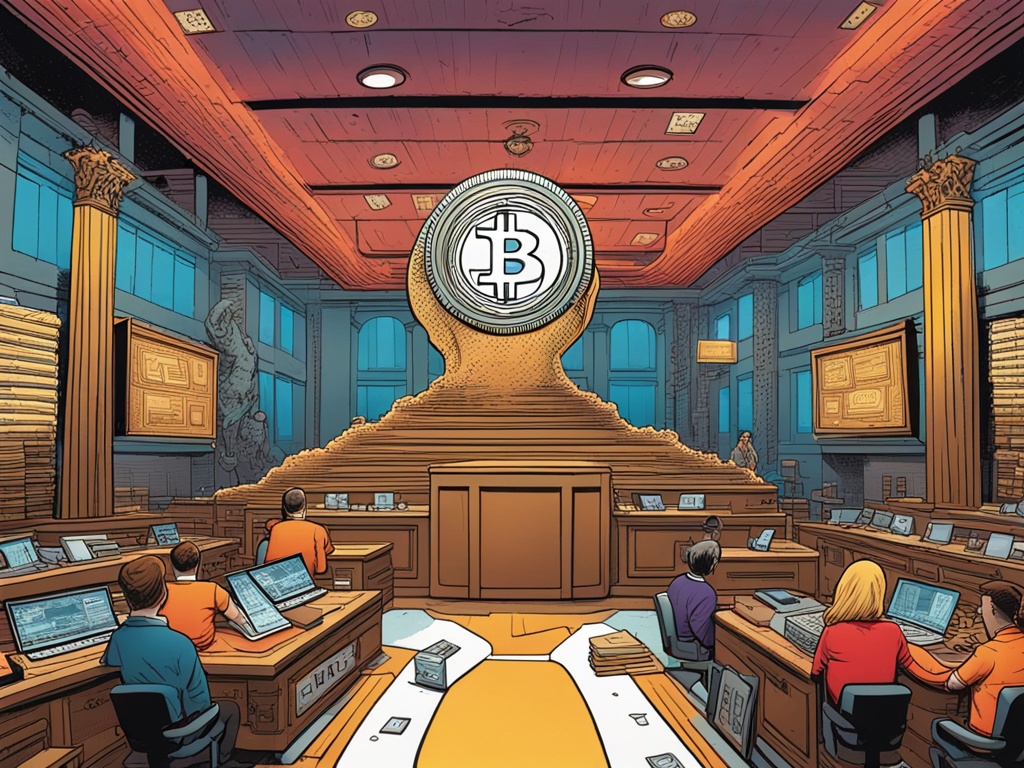Could Oklahoma Become the Next Bitcoin Hub?
Alright, let’s dive into what’s happening in the crypto world, particularly with Oklahoma’s latest legislation that could change the game for Bitcoin. It’s exciting, it’s controversial, and it might just get you pondering about how digital currencies can shape our economy.
Key Takeaways:
- Legislation: Oklahoma Senator Dusty Deevers proposed the Bitcoin Freedom Act to allow Bitcoin payments.
- Economic Hedge: The bill considers Bitcoin as a hedge against inflation impacting purchasing power.
- Mainstream Acceptance: The proposal positions Oklahoma as a leader in financial technology.
- Legislative Movement: This is part of a larger trend across various U.S. states embracing cryptocurrency.
Senator Deevers introduced SB325, the Bitcoin Freedom Act, which aims to integrate Bitcoin into Oklahoma’s economy. The gist? Employees can receive their salaries in Bitcoin and businesses can accept it as payment. Pretty neat, right? It’s like saying to workers, “Hey, if you’re feeling brave, don’t just get paid in dollars; why not Bitcoin?”
The Cost of Banking: Inflation Woes
Deevers framed this proposal as a remedy to inflation—a topic that’s been on everyone’s mind lately. You know inflation is that pesky little monster that creeps into our wallets, reducing purchasing power faster than you can say "Buy the dip!" It’s comforting to think that Bitcoin, with its notoriously limited supply, could act as a buffer against this. Think about it: fiat currencies can be influenced by monetary policy changes, while Bitcoin stands a bit apart in that regard.
The Push for Financial Freedom
What I find fascinating is how Deevers emphasizes voluntary participation. It’s not a mandate, rather a choice. That gives people, and businesses, a sense of financial freedom—like being given the car keys but still having the option to use a bicycle if you prefer. This effort not just promotes flexibility in compensation methods but also positions Oklahoma as a forward-thinking state in the tech world. Can you imagine potential tech companies flocking to Oklahoma, attracted by its Bitcoin-friendly policies?
Deevers makes a strong claim that Bitcoin has hit the mainstream, suggesting it is now a significant part of our financial future. With such statements, it’s hard not to feel excited about the potential impact on not only Oklahoma but the entire financial landscape.
More Than Just Oklahoma: The Bigger Picture
Now, let’s not forget, Oklahoma isn’t alone in this race. States like Texas, Louisiana, Montana, and Arkansas have all enacted similar laws to shore up their positions regarding crypto mining and ensure the rights of those holding digital assets. This isn’t just a small-town initiative; it’s a full-blown movement. Yeah, it seems like everyone’s jumping on the Bitcoin train!
For instance, let’s take a look at Ohio. Their House Bill 703 allows the state treasurer to invest public funds in Bitcoin. This is a bold move and reflects a growing sentiment that maybe, just maybe, Bitcoin could be an effective safeguard against the devaluing U.S. dollar. It’s almost like various states are having a friendly competition to see who can be the most crypto-savvy.
Practical Tips for Investors
Alright, so how does all this information translate into actionable steps for you as a potential investor? Here are some practical nuggets to chew on:
- Stay Informed: Keep an eye on legislation in your state. Laws changing can impact the market and your investment strategies.
- Invest Mindfully: If states like Oklahoma are embracing Bitcoin, consider how that might lead to increased adoption and potentially higher values.
- Diversify: While Bitcoin is sparking excitement, don’t put all your eggs in one digital basket. Explore other cryptocurrencies and technology sectors.
- Engage with the Community: Join local Bitcoin and cryptocurrency groups. Networking can lead to valuable insights and opportunities.
Reflecting on the Future
As we wrap up, it’s essential to ponder the implications of this movement. If states begin to adopt Bitcoin as a valid form of payment and investment, how might that shape the common perception of cryptocurrency? Will we see a shift in how we think about money? It’s thrilling to think about where all of this is going.
So, with all these changes in the wind, do you feel bullish or bearish about the future of Bitcoin in our economy? Let’s see where this journey takes us, right?





 By
By
 By
By
 By
By
 By
By
 By
By
 By
By